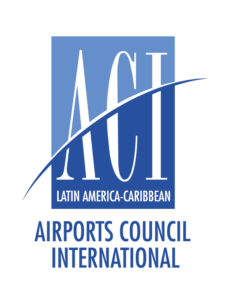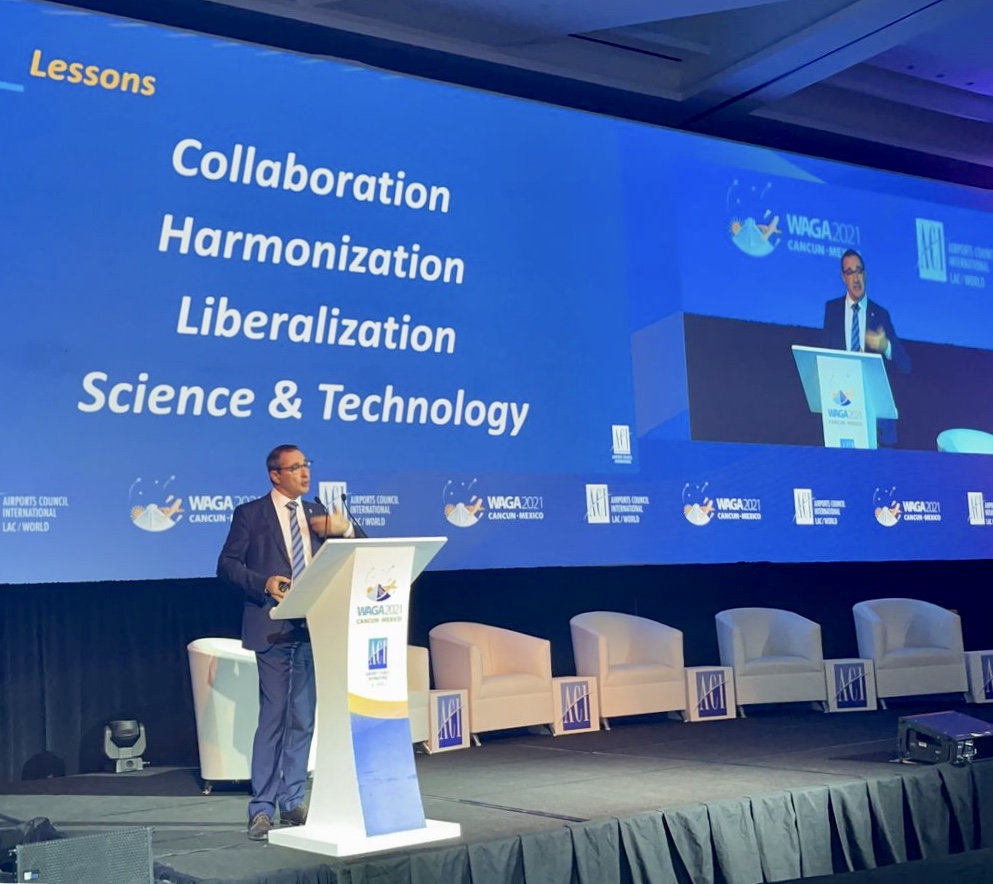1. What stands out as the main achievement after holding this Annual General Assembly of ACI-LAC, beyond the renewal of your board and the resolutions they have adopted?
The commitment, the interest of the airports in the region in everything related to the environment has become very clear. That has been one of the main issues we have discussed. It is very clear that there is great interest and, in fact, it is one of the issues that we will be reinforcing next year as part of an strategy at ACI-LAC, in the sense of ensuring that all airports are aware of new technologies, of how airports would have to respond to them, such as the development of SAF and, later, with the issue of hydrogen and electricity. Apart from that, there is how airports have to respond, what potential they have to be greener, more sustainable themselves. This covers not only environmental issues, but also social ones. I think that another great issue is that of new technologies, those that facilitate the passenger experience at airports and also to be much more efficient, when using the infrastructures that we have.
2. What general recommendations have you made to the members of ACI-LAC, in terms of a road map to overcome the current crisis resulting from the pandemic?
Well, I think it has also been very clear that there are several pending issues regarding a coordinated response and the general coordination regarding the recognition of vaccinations. We already know that quarantines kill demand because those countries that have not imposed any type of restrictions are the ones that are recovering the fastest. I am referring to Mexico, Colombia and the Dominican Republic, which are the greatest examples. But above all, the pending subject of the recognition among the countries of their vaccination processes remains a key task. There is still a much greater harmonization to be achieved.
3. What is the main duty with which you leave this Annual General Meeting as an organization?
As an organization, one of the main mandates that we have received, which the board of directors has asked me to do, is for ACI to be more visible in the region in the sense of being much more connected with the press, with governments, with decision-makers, stakeholders and all parties that affect what we do as an industry and have much more visibility. That is very relevant. ACI, within the industry as a whole, requires more visibility because it deserves it and that is one of the great pending issues that has reinforced to me, as a mandate, from our board of directors and, in that sense, we will be much more present in next year and later too. In other words, ACI’s visibility is going to be much greater and we believe that on the environmental issue, we are called to take a leadership position. We have to be the leaders, the standard bearers of sustainability.
4. You are a regional chapter of ACI for Latin America and the Caribbean. Bearing that in mind, isn’t there also room for a greater presence at a more local level with the structures of this part of the world such as ECLAC, CELAC and Mercosur, to name a few, in the sense of talking there about how much aviation civil has done to confront this pandemic and that, in this way, governments make the most appropriate decisions for the industry regarding issues that affect its development?
That is part of the work that I have been entrusted with, with a view to having much more presence and visibility. Precisely, in front of the Inter-American Development Bank, the World Bank, the Caribbean Development Bank, of Central America, among others, we want to have a clear correspondence and be very visible. There has been an avalanche of information on the issue of Covid-19 and in some way we have been one of many voices, although it should be noted that airports, airlines and CANSO have had a common voice in front of the authorities. However, what we will seek is to strengthen those ties and those channels, such as ACI, with all the corresponding institutions and with all governments.


